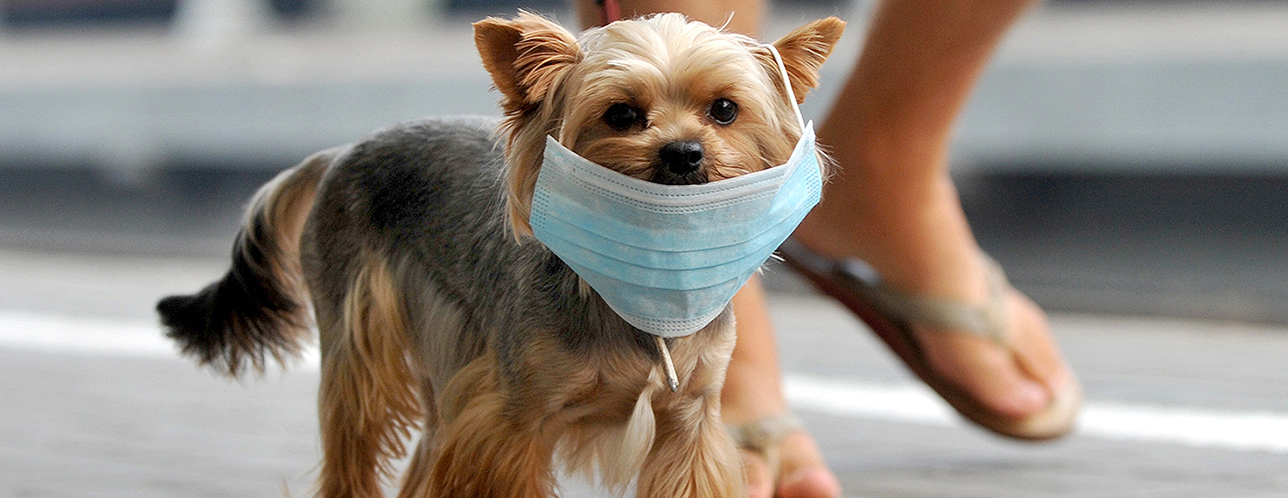It’s been about more than a month since the first case of the Coronavirus (COVID-19) was reported in Wuhan, and while countries have each been doing their part to curb the spread of the disease, the virus still shows no sign of stopping. What makes the situation even more complicated is that the spread
has become localised; spreading within communities and amongst individuals who have never visited China.
In addition to the long list of worries about the Coronavirus, there’s also been a growing query about the possibility of pets contracting the Coronavirus — especially after that photo of the mask-wearing cat from China went viral.

Before you start crafting a face mask for your furry pal, here’s what you should know about COVID-19 and house pets.
Can house pets transmit the Coronavirus to humans?
Previously detailed investigation had found that SARS was transmitted from civet cats to humans in China in 2002, while MERS was transmitted from dromedary camels to humans in 2012. While the source behind the current COVID-19 has not been identified yet, this does not mean that you can catch the virus from any animal or even from your pet.
Although it is likely that an animal source from the live animal market in China was responsible for some of the first reported human infections, there is no credible evidence that suggests that our companion animals have the ability to transmit the current COVID-19 strain of virus to us.

Are house pets at risk of contracting COVID-19?
You can put away the makeshift face masks for your pets, as it is highly unlikely for your furry pals to contract the current COVID-19.
Coronaviruses occur in almost every species of animal, including humans, and are typically associated with unapparent or transient intestinal and respiratory infections that are species-specific. Although there is no possibility for your pet to catch the problematic COVID-19, there are possibilities of them catching their very own form of Coronavirus.
Dogs, for example, are susceptible to other strains of Coronaviruses which include the Canine Respiratory Coronavirus that affects only canines and cannot be passed onto humans. Canine Coronaviruses are typically transmitted through dog-to-dog contact such as coughing and sneezing, as well as through poor hygiene when handling bowls, collars, and leashes. The
hands and clothing of people who have handled infected dogs can also be transmitted to a healthy dog.
Just out of curiousity, what are the symptoms of Canine Coronavirus?
Unlike human symptoms, it is hard to detect Canine Coronavirus-related symptoms in dogs. But when they do, you would notice a sudden onset of diarrhoea alongside your dog feeling lethargic and having a poor appetite. Your dog’s diarrhoea may also contain blood or mucus. While it is possible for the symptoms to match a couple of other illnesses, the best thing to do is to always seek clarification from a vet.

Should I be worried at all about COVID-19 affecting my furbaby?
The short answer is no. The idea that household pets can spread or contract this specific type of Coronavirus is purely a myth. However, it is still possible for us to get affected in other ways because of common bacteria like E.coli and Salmonella, which can be passed from pets to humans. That’s why as it is with the current pre-caution for COVID-19, it is extremely important to wash your hands with soap and water after contact.
Featured image credit: Getty Images











You must be logged in to post a comment.